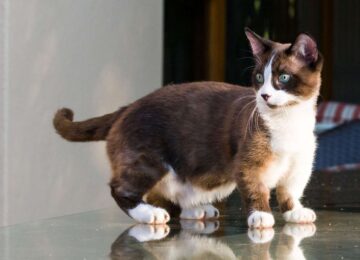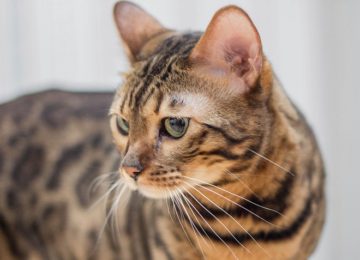When it comes to feline favourites, there’s one fish that stands out above the rest: salmon. Known for its delectable taste and rich nutritional profile, salmon is not just a treat for humans but also for our furry friends. It’s no wonder why it’s often referred to as the “Cat’s Catch of the Day.” Salmon is a species of fish found in both freshwater and saltwater environments. Its distinct pink flesh is not only visually appealing but also packed with essential nutrients that benefit both cats and humans alike. From omega-3 fatty acids to high-quality protein, salmon offers a myriad of health benefits that make it a standout choice for pet owners looking to provide their cats with a wholesome diet. One of the most significant advantages of feeding salmon to cats is its omega-3 fatty acid content. These fatty acids play a crucial role in maintaining optimal feline health. They support cognitive function, promote a healthy coat and skin, and aid in reducing inflammation. For cats, whose ancestors were hunters, omega-3 fatty acids are essential for maintaining their natural instincts and overall well-being. Furthermore, salmon is an excellent source of protein, which is vital for muscle growth and repair in cats. Protein provides the building blocks for tissues, enzymes, hormones, and antibodies, ensuring that cats have the energy and strength they need to thrive. With its high protein content, salmon serves as a nutritious option for cats of all ages, from playful kittens to wise old cats. In addition to omega-3 fatty acids and protein, salmon also contains essential vitamins and minerals, including vitamin D, vitamin B12, selenium, and potassium. These nutrients support various bodily functions, such as bone health, immune function, and electrolyte balance, contributing to the overall health and vitality of cats. Feeding salmon to cats can be done in various ways, whether raw, cooked, or as part of a commercially prepared cat food formula. However, it’s essential to note that certain precautions should be taken when incorporating salmon into a cat’s diet. Raw salmon, in particular, may contain harmful bacteria or parasites that can pose risks to cats. Therefore, it’s crucial to properly prepare and cook salmon before serving it to your feline friend to ensure their safety. When choosing salmon-based cat food or treats, opt for high-quality products made from real salmon and free from artificial additives or preservatives. Reading labels carefully and selecting reputable brands can help ensure that your cat receives the best possible nutrition without any unnecessary fillers or additives. Introducing salmon into a cat’s diet should be done gradually, especially for cats who may have dietary sensitivities or allergies. Monitoring your cat’s response to salmon and consulting with a veterinarian can help determine the appropriate portion sizes and feeding frequency to meet your cat’s individual nutritional needs. Overall, salmon is a sensational choice for cats, offering a delicious taste and a wealth of nutritional benefits. From omega-3 fatty acids to protein and essential vitamins and minerals, salmon provides everything cats need to thrive and live their best lives. So the next time you’re looking for a special treat for your feline friend, consider serving up some salmon – it’s sure to be a hit!












